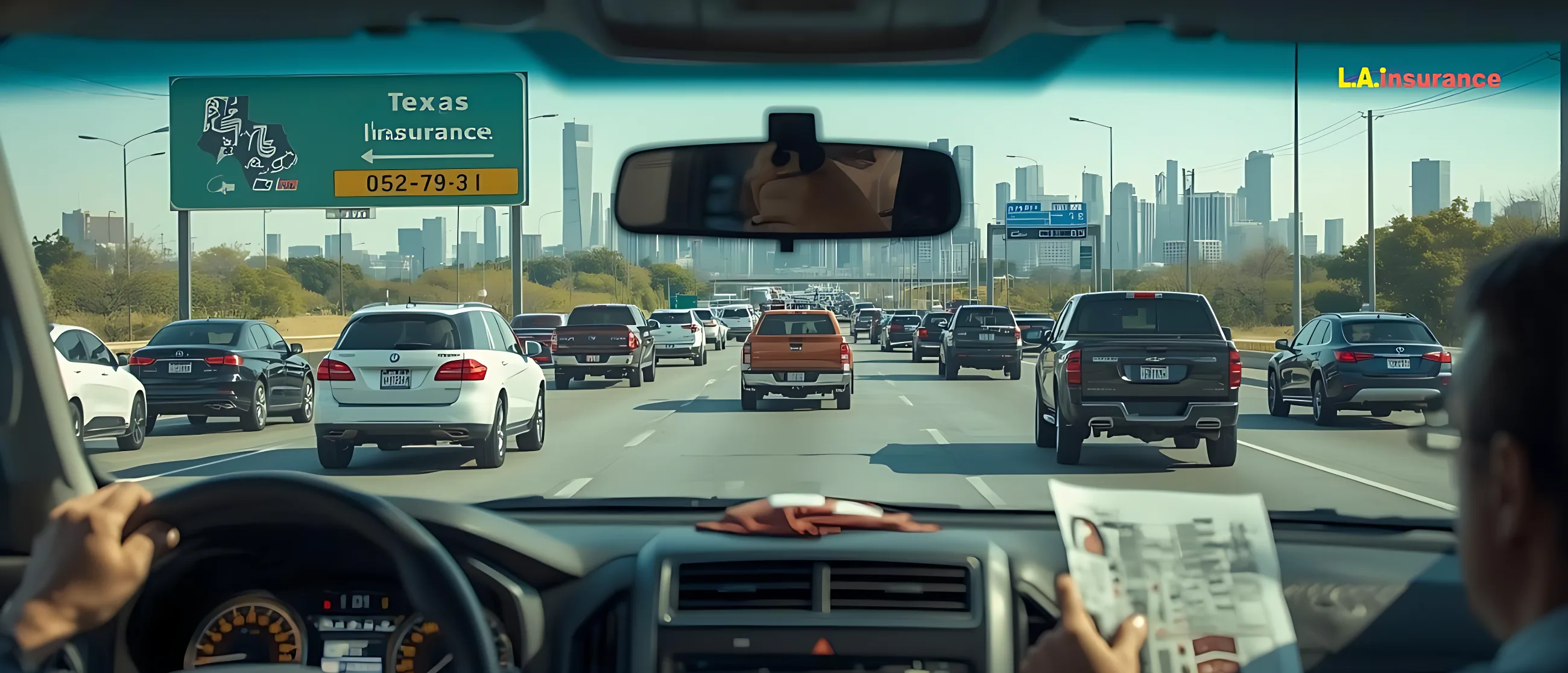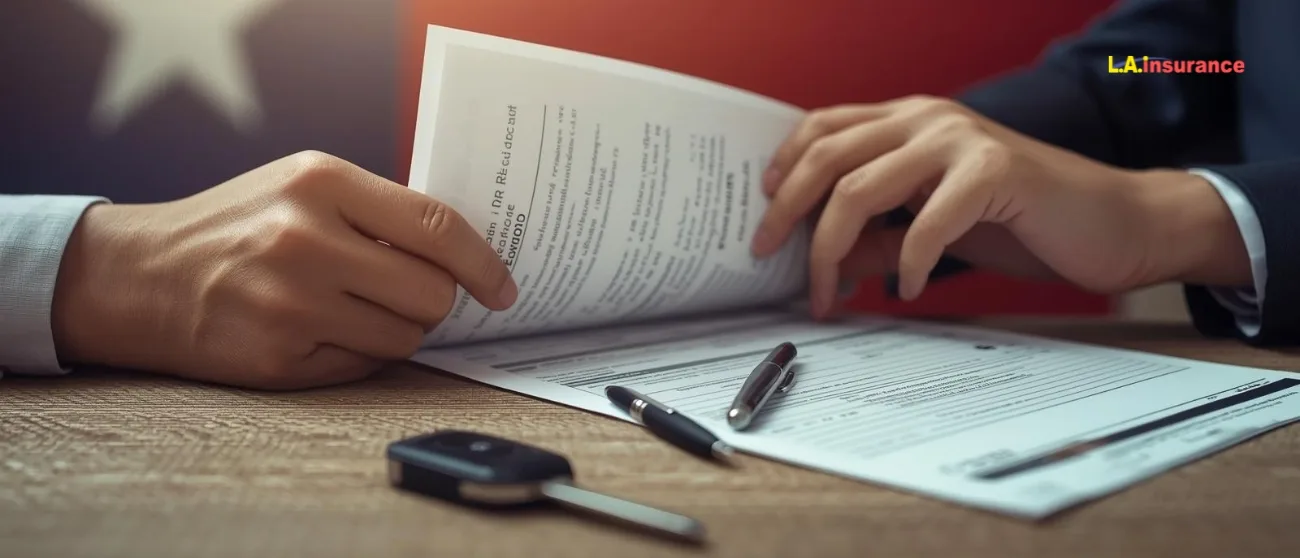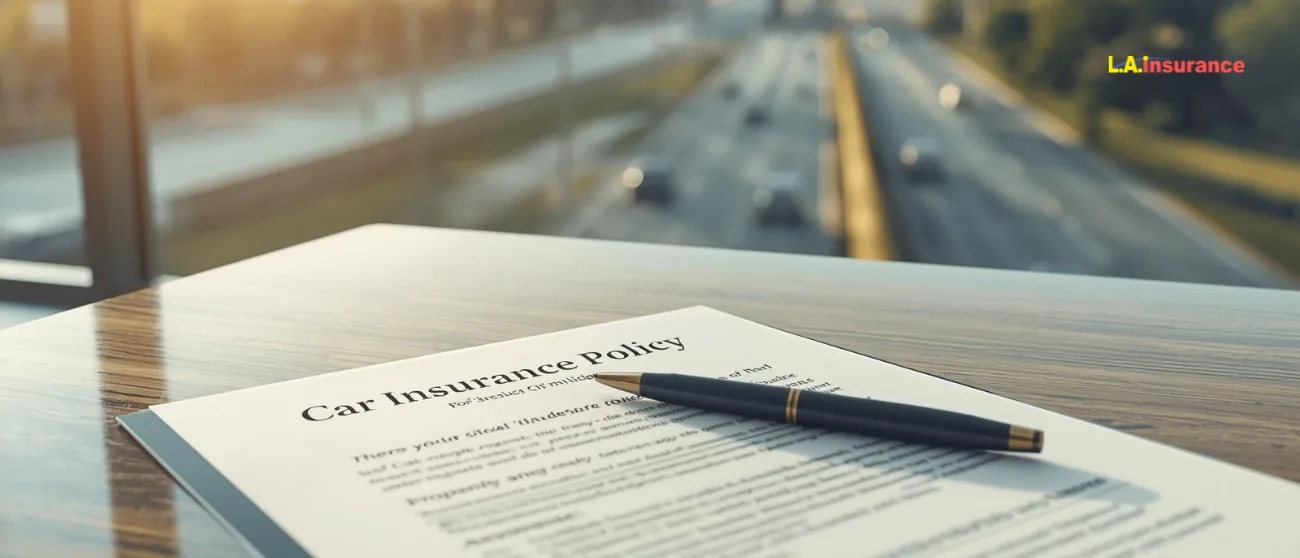
Publish Date: 19-11-2025
Auto Insurance
Last Updated: 23-11-2025
What to Do When Auto Insurance Denies Claim?
You’ve been in a car accident, filed your car insurance claim, and waited for that approval letter. Unfortunately, instead, you received a claim denial letter, which is a formal notification from your insurance company stating that your submitted claim has been rejected and explaining the reason for the denial. It may feel like another crash, but this time with paperwork and unexpected hassle. However, if your auto insurance company denies your claim, it’s not the end of your story. There are steps you can take if your auto insurance claim is rejected.
In this article, you’ll learn about the different types of car insurance claim denials, common reasons why insurers issue them, and 10 actions you can take to overturn a denied claim. We’ll also cover what to do if the at-fault driver’s insurance company denies your claim, share a real-life example, and show you how to avoid claim denial in the future.
Types of Car Insurance Claims and the Type That’s Denied Most Often
There are two types of claims:
- First-party claims
- Third-party claims
A first-party claim is when you file a claim with your own insurance company. For example, after a crash, your might use your collision coverage, comprehensive coverage, or personal injury protection (PIP) to pay for your medical bills, vehicle repairs, or other damages.
Since this type of claim relies on your own auto insurance policy, your insurer investigates and decides how much they’ll cover.
A third-party claim, on the other hand, is when you file against another driver’s insurer, usually the at-fault driver’s insurance company. These cases often take longer, as the insurer must verify fault, assess evidence, and sometimes coordinate with police reports and witness statements.
Between these two types of claims, third-party claims are often more complicated and are frequently denied. This type of claim typically takes longer to resolve and is often denied due to disputes over fault, missing evidence, or delays in communication among drivers, insurers, and witnesses.
Get your auto policy from the most trustworthy and affordable insurance agency and experience a smooth claim process. We ensure you get the cheapest full coverage car insurance with same-day protection. Request a quote right away and receive proof of insurance instantly, or give us a call at (800) 893-9393.
Common Reasons for Car Insurance Claim Denials
Even the most careful driver can face a denied claim. It’s rarely random. Drivers in California, Texas, and Florida experience the highest rates of claim denials. Michigan ranks 8th in auto insurance claim denials. Nationwide, between 5% and 15% of all auto insurance claims are denied at some stage. Most insurance companies reject claims for a few recurring reasons:
- Policy lapse or expired coverage
- Missing or incorrect information
- Lack of evidence or documentation
- Disputed fault or liability
- Excluded damages under the policy
- Late claim filing Suspected fraud or misrepresentation
- Medical or repair costs not proven
- Failure to cooperate with insurance adjusters
Policy Lapse or Expired Coverage
If your auto insurance policy isn’t active at the time of the accident, your insurance company can deny the claim instantly. A missed premium payment or a lapsed renewal usually leads to this. Always keep your policy current to avoid a car insurance claim rejection. Talk to your insurer about the grace period as well if you have forgotten to pay the premium.
Learn more about car insurance lapse and grace period.
Missing or Incorrect Information
While filing claims, simple errors, for example, wrong date, missing signature, or incomplete police report, can delay or trigger denial. Insurance adjusters rely on accurate details to validate your insurance claim, so review every document before submission.
Lack of Evidence or Documentation
If your claim lacks proper evidence, such as photos, medical records, or repair estimates, you might face claim denials. Insurance companies need proof to verify damages and injuries. Always collect additional evidence like witness statements or photos from the accident scene.
Disputed Fault or Liability
If there’s disagreement about who caused the car accident, the insurance provider may deny or delay payment. This usually happens in third-party claims, where the fault driver’s insurance challenges your story or evidence.
Excluded Damages Under the Policy
Some losses just aren’t covered. For example, using your car for business or ridesharing may void personal auto insurance coverage. Make sure to check the exclusions, including:
- Excluded incidents (e.g., collision, theft, vandalism, weather damage), if you have liability-only
- Damage from driving under the influence (DUI/DWI)
- Using your personal vehicle for business purposes
- Intentional damage or a fraudulent claim
- If your car is damaged by an unauthorized or unlicensed driver
Late Claim Filing
Most insurers set strict deadlines for reporting accidents. Failing to report promptly or within 24 to 72 hours can make your car insurance company to deny your claim, even if it’s valid. So, try to file your claim as soon as possible.
Suspected Fraud or Misrepresentation
Insurance fraud is common in America and is one of the common reasons for claim denial. In fact, between 10% to 20% of claims are fraudulent (via ValuePenguin). So, if an insurer suspects false statements, exaggerated damages, or staged accidents, they can deny or even cancel the insurance policy. Be transparent with your insurance company during every step of the claims process.
Medical or Repair Cost Not Proven
Without receipts, doctor notes, or estimates, insurers cannot verify the amount owed. Unsupported medical bills or vague injury claims are common red flags for claim denial. Keep detailed records of every visit, invoice, and repair.
Failure to Cooperate with the Adjuster
Cooperating with the adjusters is the crucial part of the claim process. If you fail to communicate with the adjusters, ignore calls, or refuse inspection from the adjuster, it can halt your claim. Cooperation shows good faith and helps resolve claim denial issues faster.
10 Things to Do If Your Auto Insurance Company Denies a Claim
Facing an auto insurance claim denial is frustrating, but that’s not the end of the world. There are steps you can take if your auto insurance company refuses to pay out. You can appeal the decision, present additional evidence, push for a fair outcome, and so on.
Based on the expert guidance and verified data, here are the 10 most effective steps to take after your car insurance company denies your claim:
- Find out exactly why your claim was denied
- Compare the denial letter with your insurance policy
- Gather additional evidence and documentation
- Contact your insurance adjuster for clarification
- Submit a formal appeal to the insurance company
- Request an independent appraisal or second opinion
- File a complaint with your state insurance department
- Explore other coverage options within your policy
- Consider mediation or arbitration before filing a lawsuit
- Seek professional help if you suspect bad faith or unfair treatment
Let’s explain every action in detail, so you know exactly how to respond when your auto insurance company denies your claim.
1. Find Out Exactly Why Your Claim Was Denied
When your auto insurance company denies a claim, the first thing to do is slow down and read the claim denial letter very carefully. The document explains why your car insurance claim was rejected and lists the policy rules or exclusions behind it.
Insurers must give a reason for every claim denial. It could be a policy lapse, missing evidence, late filing, or even unclear fault. Don’t assume, verify. Highlight key terms and note any reference to sections in your auto insurance policy.
The real reason helps you plan your next step. Sometimes it’s just missing paperwork or a misunderstanding with the insurance adjuster. Once you know why your claim is denied, you can collect additional evidence or appeal the decision.
2. Compare the Denial Letter with Your Insurance Policy
Grab your auto insurance policy and line it up with the denial letter. Read both side by side. Every insurance claim is tied to a coverage rule, exclusion, or limit in your contract. Check if the insurer’s reason truly matches what’s written. Sometimes denials come from misinterpretation or missed updates in coverage.
3. Gather Additional Evidence and Documentation
A claim denial often happens because something is missing. You can strengthen your case by collecting police reports, medical bills, photos from the accident scene, and witness statements. Keep everything organized. The more information and proof you have, the easier it is to show your insurance provider that your claim was denied unfairly.
4. Contact Your Insurance Adjuster for Clarification
Reach out to your insurance adjuster directly. Ask polite, specific questions about why the car insurance company denies your claim. Take notes of every call or email. Keep track of dates, names, and what was said. This communication record can help later if you need to appeal the decision or file a complaint.
5. Submit a Formal Appeal to the Insurance Company
If you believe your auto insurance company made a mistake, file an official appeal. Most insurers have a clear process for this. Include your denial letter, policy number, and additional evidence that supports your claim. Be clear, factual, and respectful. Many car accident victims see results after showing they understand both their rights and their insurance policy.
6. Request an Independent Appraisal or Second Opinion
Sometimes a dispute isn’t about coverage but about how much your vehicle damage is worth. If that’s the case, get an independent repair estimate or appraiser’s report. This neutral evidence can help challenge low valuations or unfair rejection. An appraisal shows your insurance company that you’re serious and informed.
7. File a Complaint with Your State Insurance Department
If your appeal doesn’t fix the issue, take it to your state insurance regulator. Every state, including Michigan, allows consumers to file a complaint when they feel an insurance company isn’t being fair. The department will review your claim denial and require the insurer to respond. It’s a formal way to hold companies accountable without going to court yet.
8. Explore Other Coverage Options Within Your Policy
You might have other protections built into your auto insurance policy. Check for Personal Injury Protection (PIP), uninsured motorist, or comprehensive coverage. These can cover injuries, property damage, or medical bills while your denied claim is under review. Smart drivers use every available option to stay protected.
9. Consider Mediation or Arbitration Before Filing a Lawsuit
If your car insurance company still won’t budge, ask about mediation or arbitration. These are faster and less expensive than going to court. Mediation lets both sides talk it out with a neutral party. Arbitration provides a binding decision based on evidence. Both methods help resolve disputes before things escalate into a lawsuit.
10. Seek Professional Help If You Suspect Bad Faith
If your insurer delays, avoids contact, or acts unfairly, they may be acting in bad faith. At this point, contact a licensed car accident lawyer or an independent claims expert. They can review your insurance policy, handle negotiations, and guide you through filing a lawsuit if necessary. Having a professional on your side keeps the insurance company accountable and protects your rights as a policyholder.
Learn how to file a car insurance claim after an accident.
What Should You Do If an At-Fault Driver's Insurance Company Denies the Claim?
You did everything right. The accident wasn’t your fault. You filed a third-party claim, yet the at-fault driver’s insurance company denies your claim. It happens more often than you’d think and usually for the same reasons, including disputed fault, lack of evidence, or missing police reports.
When this happens, don’t panic. Ask the insurer for a written explanation of the claim denial. Get the reason in detail. Then send over additional evidence photos from the accident scene, witness statements, or a copy of the police report. Strong proof can change the outcome.
If they still refuse to pay, you can contact your own auto insurance company and see whether your collision or uninsured motorist coverage can help you. You can also file a complaint with the state insurance department or request mediation to keep things moving without going to court right away.
Also Read: Can I cancel an auto insurance claim after filing it?
Real Life Example of Car Insurance Claim Denial
One Reddit user from Arkansas, let’s call him Alex, shared his experience about claim denial in a discussion thread. After a hit-and-run accident, Alex’s car was rear-ended on the freeway. The impact tore off the fender and caused major vehicle damage. He immediately called the police, filed a police report, and submitted an auto insurance claim to his insurer.
A few days later, an insurance adjuster inspected the car and declared it a total loss. Alex even received a total loss letter via email confirming the outcome. But soon after, the adjuster called again, this time to say the claim was being denied. The reason? The insurer found that part of the damage was pre-existing, dating back to a prior parking lot incident that happened before Alex was insured.
Even though the new accident clearly worsened the condition of the vehicle, the insurer decided the damages weren’t “justifiable” for coverage under the auto insurance policy. This story shows how easily claim denial can occur when pre-existing damage isn’t properly documented at the start of coverage.
The takeaway here is simple. Always record and disclose any prior damage when you buy or renew your car insurance policy. It helps your insurance company distinguish old damage from new accidents and keeps your car insurance claim safe from unnecessary rejection.
Tips to Avoid Auto Insurance Claim Denials
The best way to deal with a claim denial is to prevent it even before it happens. Here are some practical and proven ways to avoid auto insurance claim rejection.
- Keep your policy active. Pay your premiums on time. A single missed payment can cause a policy lapse.
- Report accidents immediately. Don’t wait. File a police report and notify your insurance company as soon as an accident occurs. Late reports are a common reason claims get denied.
- Document everything. Take photos of the accident scene, gather witness details, and save every medical bill or repair receipt. Clear evidence makes it harder for your insurance provider to question your claim.
- Tell the full truth. Be honest about what happened. Any missing or incorrect information can make your insurance company think you’re acting in bad faith.
- Understand your coverage. Read your auto insurance policy before trouble strikes. Know what’s covered, what’s excluded, and how deductibles work.
- Cooperate with your adjuster. Answer calls, share requested documents, and let the insurance adjuster inspect your vehicle.
- Keep medical and repair records organized. If you’ve been injured, save all medical records and invoices. For property damage, keep repair estimates handy.
- Review your policy regularly. Life changes, so should your coverage. Update your car insurance policy when you move, buy a new car, or change how you use your vehicle.
- Avoid exaggerating damages. Never inflate repair costs or injuries. Even a small exaggeration can lead to full claim denial or a canceled insurance policy.
Wrapping Up
A claim denial isn’t rare, and it can happen to anyone. If it happens to you, don’t panic. Review the claim denial letter carefully, and then contact your insurance company directly. Try to understand what actions you should take in this situation, especially if you believe the denial isn’t based on a justified cause. However, if you find that the insurer has valid reasons for refusing your claims, such as excluded perils, insufficient coverage, or other legitimate factors, it’s better not to waste time disputing it. Instead, consider paying for repairs or injuries out of pocket and prepare yourself better for the future.
Frequently Asked Questions (FAQs)
What to do when an auto insurance company denies a claim in Michigan?
In Michigan, review your denial letter first. Then check your no-fault coverage and Personal Injury Protection (PIP) benefits. You can appeal the decision directly or file a complaint with the Michigan Department of Insurance and Financial Services if you think your insurer is being unfair.
How do I respond to a denied insurance claim?
Ask your insurer for the reason in writing. Then gather additional evidence, compare it with your policy, and submit an appeal with documents that support your case.
How long does it take to process my auto claim?
Most insurers process claims between 7 to 30 days or less, depending on the evidence and the complexity of the accident. Delays usually occur if medical records or repair estimates are missing.
Which insurance company denies the most claims?
Denial rates vary by state and claim type. What matters most is documentation. Car insurance companies usually deny claims due to incomplete information, not reputation.
What to do if my insurance company isn’t acting in good faith?
If you suspect your insurer is acting in bad faith, document every interaction and file a complaint with your state regulator. You can also consult a car accident lawyer to explore legal options.
Can I call my insurer during the claim process?
Absolutely. In fact, you should. Keep communication open with your insurance adjuster and ask for updates regularly. It helps prevent misunderstandings.
Can I request my insurance company to reconsider the claim denial?
Yes. Every policyholder has the right to appeal. Submit a formal written request, include your denial letter, and attach any new evidence or witness statements that strengthen your case.
Editorial Disclaimer
The information provided on this blog is for general informational purposes only and does not constitute professional insurance, legal, or financial advice. Coverage and rates are subject to individual eligibility, underwriting guidelines, and state availability. For specific questions regarding your policy or to get an accurate quote, please contact a licensed L.A. Insurance agent directly. We're an independent agency and not a direct insurance carrier. For more information on how we operate and handle your data, please see our Terms and Conditions and Privacy Policy.
Tag :
Auto insurance
cheap car insurance








